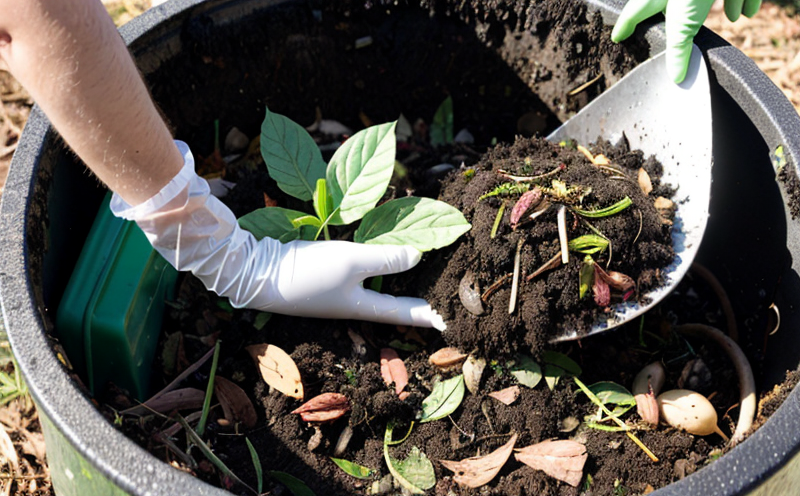ISO 17603 Soil & Compost Microbial Diversity Testing
The ISO 17603 standard provides a comprehensive framework for assessing soil and compost microbial diversity, which is crucial in ensuring the quality of bio-based products. This service is particularly important for waste management and composting facilities that strive to produce high-quality compost or manage organic waste effectively.
Soil and compost are complex ecosystems teeming with various microorganisms, including bacteria, fungi, protozoa, and other microscopic organisms. Understanding the microbial community in these environments helps in ensuring ecological balance and sustainability. This testing service is essential for industries involved in bioremediation, agriculture, and environmental management.
The ISO 17603 protocol involves several steps to evaluate the microbial diversity within a given soil or compost sample. Initially, samples are collected from various sources, ensuring that they represent different conditions and compositions. Once collected, these samples undergo thorough preparation processes, including homogenization and dilution, to ensure accurate representation.
The testing process typically involves the use of culture-based methods and advanced molecular techniques such as PCR (Polymerase Chain Reaction) and sequencing technologies. Culture-based methods identify known microorganisms based on their growth characteristics, while modern molecular approaches detect a broader range of microbial species, including those that may not be culturable.
The results of this testing are critical for several stakeholders in the waste management sector. Quality managers can use these data to ensure compliance with environmental regulations and quality standards. Compliance officers rely on this information to maintain regulatory adherence, while R&D engineers leverage it to innovate new processes that enhance microbial activity or stability.
In addition to its regulatory significance, ISO 17603 testing is valuable for procurement decisions in waste management facilities. By understanding the microbial diversity of incoming materials, procurement teams can source more consistent and reliable compost inputs, thereby enhancing product quality.
| Standard | Description |
|---|---|
| ISO 17603:2018 | Microbiology of the environment – Soil and compost – Determination of microbial diversity using culture-dependent and -independent methods. |
| ASTM D7549-11 | Determination of aerobic mesophilic plate count in soils, sludges, and other solid or semisolid matrices by spread plating using a modified pour plate technique. |
| EN 12860:2019 | Determination of the microbial content of soil and compost – Part 3: Measurement of the total number of mesophilic aerobic bacteria, fungi, and yeasts. |
Applied Standards
The ISO 17603 protocol aligns with several international standards that provide additional methodologies for evaluating microbial diversity in soil and compost. These include ASTM D7549-11, which focuses on the aerobic mesophilic plate count determination using a modified pour plate technique, and EN 12860:2019, which measures the total number of mesophilic aerobic bacteria, fungi, and yeasts.
These standards ensure that our testing methods are consistent with industry best practices. By adhering to these guidelines, we provide reliable data that can be trusted by regulatory bodies and other stakeholders in waste management and composting industries.
Customer Impact and Satisfaction
The application of ISO 17603 testing significantly impacts customer satisfaction by ensuring high-quality products and services. For waste management facilities, this means producing compost that is rich in beneficial microorganisms, which can enhance plant growth when used as a soil amendment.
For procurement teams, the ability to source materials with known microbial compositions reduces variability in product quality. This leads to more predictable outcomes in terms of performance and environmental impact. Regulatory compliance becomes easier for facilities that use our testing services, as they have verifiable data to demonstrate adherence to relevant standards.
Competitive Advantage and Market Impact
The ability to accurately assess microbial diversity in soil and compost provides a significant competitive advantage. It allows facilities to differentiate their products based on superior quality and reliability. In the market, this translates into higher customer trust and loyalty.
In addition, compliance with ISO 17603 helps waste management companies meet increasingly stringent environmental regulations. This ensures that they remain viable in a competitive landscape where sustainability is becoming more critical. By offering these testing services, we contribute to the broader goal of creating sustainable solutions for managing organic waste and enhancing soil health.





